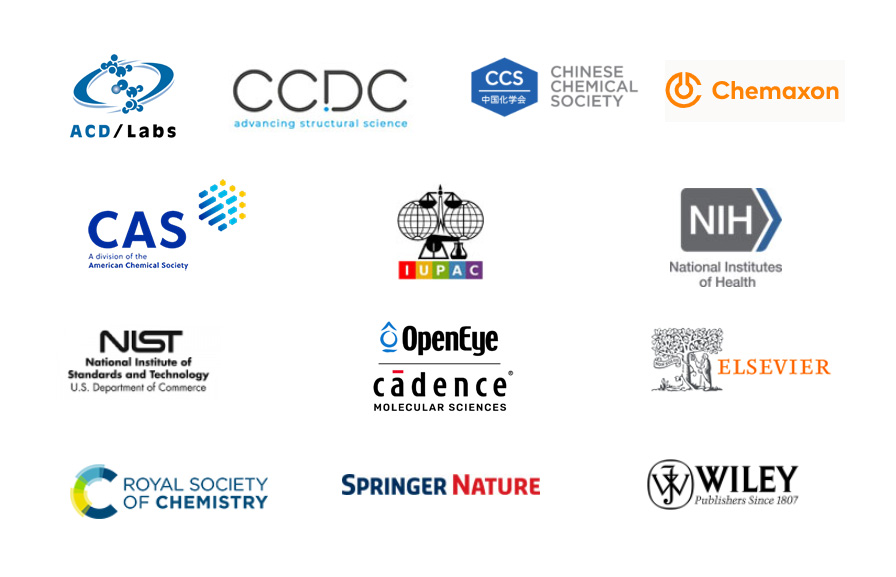More about the InChI standard
What is an InChI
Use cases
Links to further reading
Updates on InChI development
Update on new features
Project working groups
Events and publications
Join the community of InChI developers
Update on new releases
Code and web demo
Discussion groups
What support does InChI need?
Why support InChI
How to support
The InChI Trust
How we work
The InChI Trust is a charity that supports the development and promotion of the InChI standard. It works in partnership with IUPAC to update and release new extensions to and applications of InChI. The Trust is a membership organisation, governed by its Board of Trustees which includes representation from IUPAC.

The scientific design of the various tools and capabilities that comprise the InChI code are defined by the InChI Working Groups which are made up of volunteers from the InChI community with IUPAC oversight. These voluntary groups are each focused on specific areas of chemistry or tools within the InChI code. See Working Groups for details on each group and their membership.
The development of the code is coordinated by the Technical Director of the InChI Trust, together with the working groups, IUPAC and our development partners. Our development partners currently include RWTH Aachen (as part of NFDI4Chem, acknowledging funding from Volkswagen Stiftung and the Data Literacy Alliance – DALIA), and the Beilstein-Institut.

Latest news
Continuing support of 32-bit InChI components - input requested (26 June 2025)
We're proposing to stop releasing new 32-bit versions of InChI, to coincide with Windows 10 going out of support in October. While Windows 10 supports both 32-bit and 64-bit versions, Windows 11 will only work with 64-bit executables.
If you do still use the 32-bit components, or have concerns about this proposal, it would really help us if you contributed to the poll below - with comments for the concerns or continuing use cases.
https://github.com/IUPAC-InChI/InChI/discussions/136
InChI Trust Board Meeting held in Berlin (9 April 2025)
Our member Wiley hosted our Board Meeting in Berlin yesterday - many thanks for their hosting and hospitality. We covered a wide agenda - InChI's place in the wider standards environment following the recent Digital Data Standards Sustainability workshop, our evolving model to welcome in-kind contributions to the project from our development partners and others, the development roadmap of InChI and putting the right scientific and technical governance in place, and how we best communicate to our audiences. Thanks to all who contributed - colleagues from IUPAC, ACS/CAS, Chinese Chemical Society, RWTH Aachen/NFDI4Chem, Springer Nature, Wiley, RSC, NIH, Elsevier, Beilstein-Institut, ChemAxon, University of Cambridge as well as contributing funders (incl NFDI4Chem, VolkswagenStiftung and DALIA) and the developers and community that have enabled InChI so far.

Call for abstracts - ACS Fall (18 March 2025)
Call for abstracts for the InChI for Chemistry symposium at ACS Fall, part of the CINF programme. Deadline for abstract submission is March 31st.



